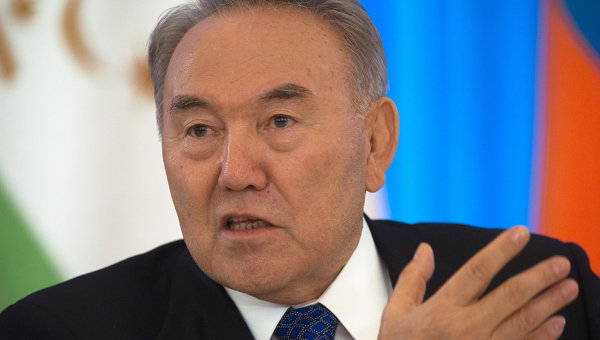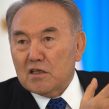
Kazakhstan’s Leading Opposition Party Azat Boycotts Upcoming Presidential Elections
Publication: Eurasia Daily Monitor Volume: 8 Issue: 32
By:

Kazakhstan’s main opposition party Azat intends to boycott the country’s presidential polls to be held in early April, which President Nursultan Nazarbayev is expected to win by a wide margin. This decision was made at the party’s congress in Almaty on February 12 because calling a snap election (announced two weeks ago) was seen by its delegates as a breach of the constitution. The elections should be held as originally stipulated in 2012, the party said in a statement.
But before coming to a resolution, the Azat Social Democratic Party voted unanimously for co-chairman, Bulat Abilov, to stand as its presidential candidate. This somewhat futile exercise was to show that the party remains an active participant in Kazakhstan’s political life. Abilov said he was by no means disappointed by the outcome of the congress as he fully agreed with the party’s decision not to participate in the election (KTK TV, February 14).
Nazarbayev issued a decree on February 4, announcing the date for the presidential election on April 3, a few days after he had unexpectedly rejected a proposal to hold a national referendum on extending his term in office until 2020. More than five million signatures had been collected in support of the referendum, representing more than half of the country’s electorate.
The reason for moving the election date is not entirely clear. The Constitutional Council found on January 31 that a referendum would be unconstitutional. Later that day, Nazarbayev announced he would cut short his term in office by almost two years and hold presidential elections. Obviously, he must have some concerns about being in a stronger and more popular position today than he might be at the end of 2012. Recent events in Tunisia and Egypt, where long-standing presidents were forced out of office after days of mass demonstrations against them, likely also played a role.
Registration of presidential candidates began on February 5 and will end on February 20. To date, six people have formally applied to the Central Election Commission to be admitted as candidates. To qualify, all presidential hopefuls have to take a rigorous Kazakh language examination to show their knowledge of the state language, a daunting task that has deterred some from running against the incumbent. In spite of the active promotion of the Kazakh language, Russian continues to be the dominant language in Kazakhstan even after almost 20 years of independence. Three of the six have so far been successful. President Nazarbayev passed the test with flying colors, according to the linguistic commission, without making a single mistake (Khabar TV, February 13). The environmentalist, Musagali Duambekov, and businessman, Salim Oten, both virtually unknown, also made the cut.
Ualikhan Kaisarov, an opposition politician from Azat, who had nominated himself without consulting his party, flunked the exam. The linguistic commission in Astana said he had made 28 mistakes on his written test and was thus unfit for the highest office. The upset Kaisarov immediately claimed that the finding was politically motivated to prevent him from participating, and alleged that he was judged on the views he expressed in Kazakh and not his language proficiency. The commission chairman, Myrzatay Zholdasbekov, made a point of presenting the heavily marked-up two pages of text to the press, full of “spelling, stylistic, and punctuation errors,” which were duly shown on state television (Khabar TV, February 13). A second attempt by Kaisarov to apply as a candidate was not even considered by the commission. Azat’s co-chairman and presidential candidate designate Abilov said that the party wants to expel Kaisarov from its ranks. “We do not support his candidacy. He has violated the party’s statutes,” Abilov said (www.zonakz.net, February 14).
One of Kazakhstan’s most vocal opposition politicians, Vladimir Kozlov of the unregistered Alga! Party, an ethnic Russian, has bowed out saying that two months was not enough time for him to learn the language properly. Last fall, Kozlov had announced his plans for running in the 2012 presidential election and said he would know Kazakh by then.
Kazakhstan has never held an election that has been assessed as free or fair by the Organization for Security and Cooperation in Europe (OSCE). The drive to prolong Nazarbayev’s presidency began in December 2010, following the OSCE summit in Astana and at the end of Kazakhstan’s one-year chairmanship of the organization.
Nazarbayev, 70, who has been in power since 1989, is the longest-serving leader in the former Soviet Union along with Uzbekistan’s President Islam Karimov. Nazarbayev was named “leader of the nation” last year, which gives him additional powers beyond his term in office. However, he is entitled to run for an unlimited number of times, if he so chooses.




